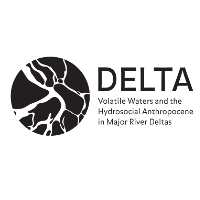Tanya Richardson (Wilfrid Laurier University) and Franz from DELTA are inviting submissions to a panel that will explore river deltas as living landscapes in order to probe the ways in which a river end may exist as something other than a delta, and the implications of (not) doing so.
The panel title is River deltas as living landscapes: movement, management, and the critique of a commonplace
This panel is part of a conference on the theme of "Mo(u)vement", run jointly by the Canadian Anthropology Society (CASCA) and the International Union of Anthropological and Ethnological Sciences (IUAES).
The conference will take place in Ottawa, CA, between May 2nd and 7th, 2017.
In order to submit an abstract, please follow this link.
Please note that the deadline for submission of abstracts to our panel is December 19th, 2016.
Panel Abstract
Life along rivers and coasts is anything but static. The places commonly referred to as "deltas" are not only sites of dense movements of substances, animals, people, technology and expertise. They also fluctuate among liquid, solid and other in-between states of matter.
Deltas have recently received renewed attention from anthropologists and other social scientists. Some study deltas because of their vulnerability due to climate change; others explore the imaginative potential of their alterity for undoing modern land/water and nature/culture oppositions, and the often destructive management practices they enable.
Yet, a tendency remains to assume that the area characterized by sediment deposits and multiple distributaries at the end of a river is essentially a delta, even in accounts that trace different delta ontologies. The assumption that a river end is necessarily a delta naturalizes a historically specific hydrological enactment that emerged in The Netherlands and travelled with Dutch expertise via colonial and development encounters.
This panel will investigate deltas as living landscapes in order to probe the ways in which a river end may exist as something other than a delta, and the implications of (not) doing so. What practices, processes, infrastructures, and stories compose river ends as living landscapes that exceed expert hydrological enactments? In what ways have inhabitants appropriated expert hydrological knowledge or been displaced by it? How might the existence of river ends as something other than deltas open up new conversations about social and ecological justice, movement and fluctuation, and alternative futures for these more-than-human landscapes?

